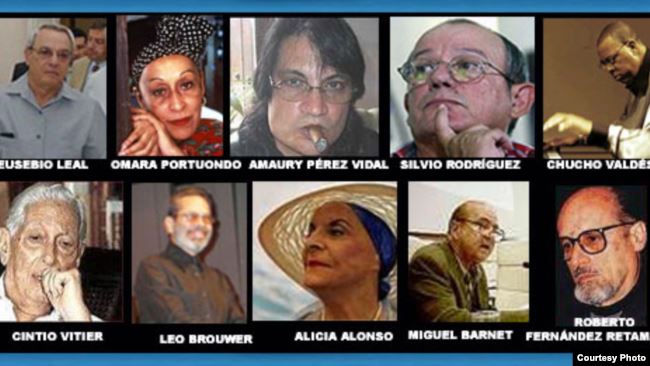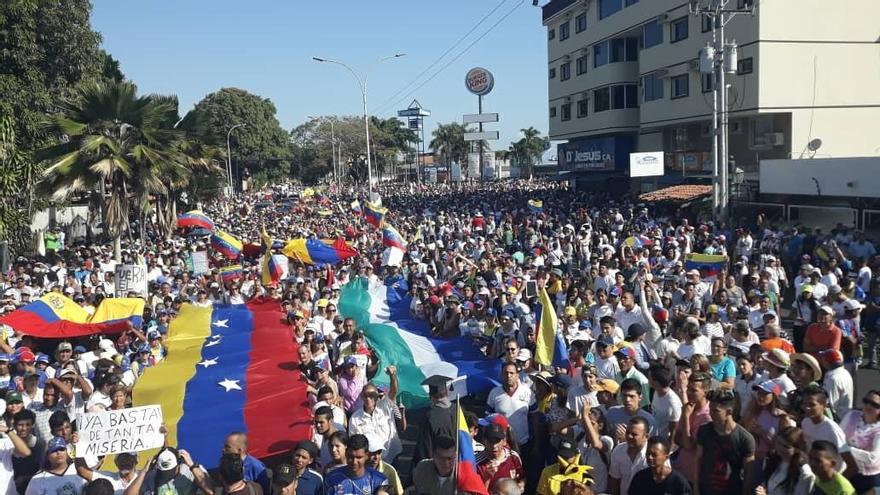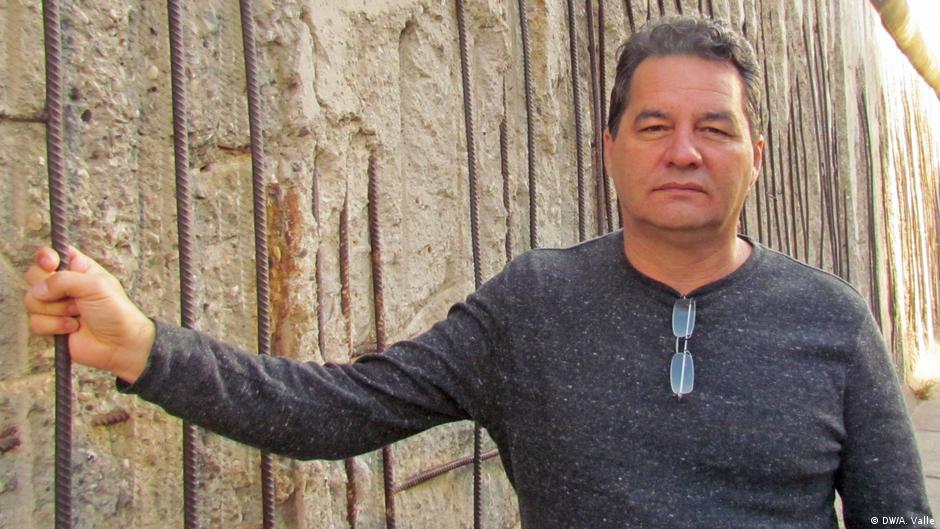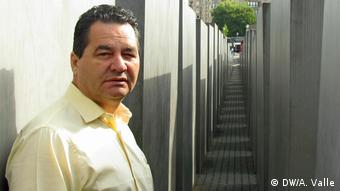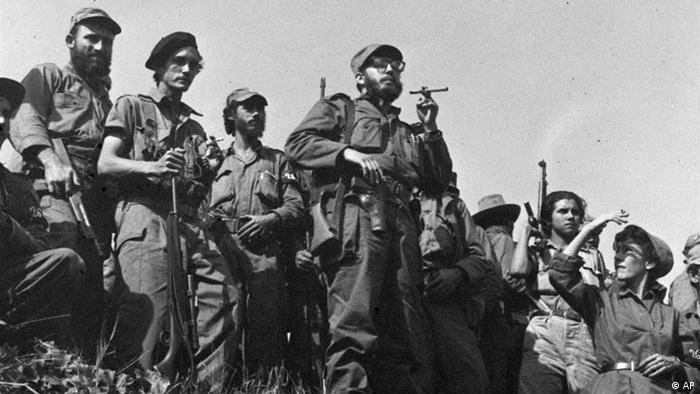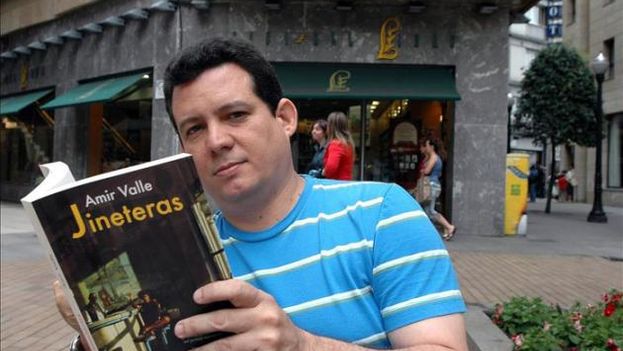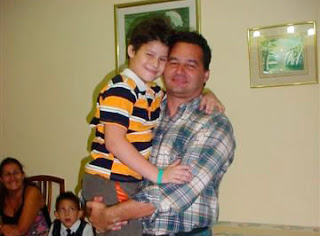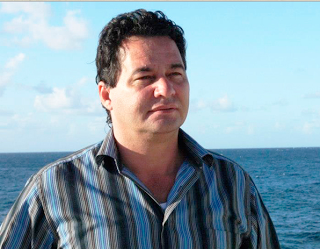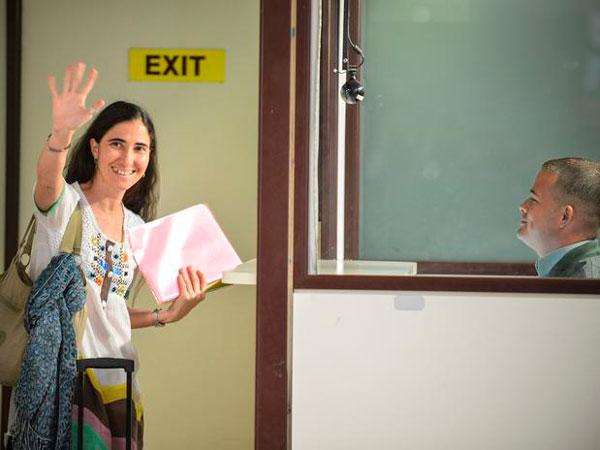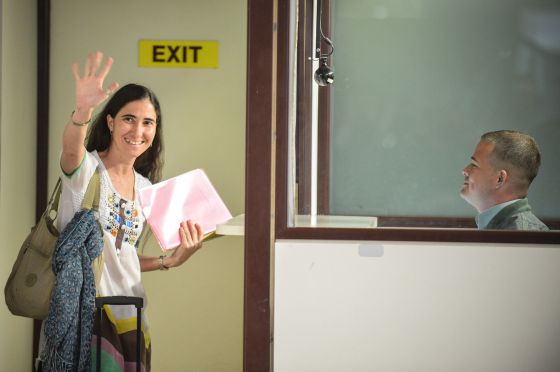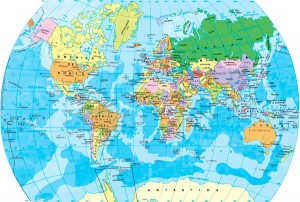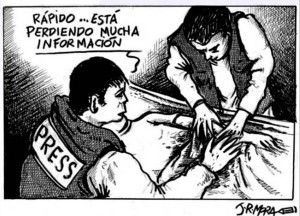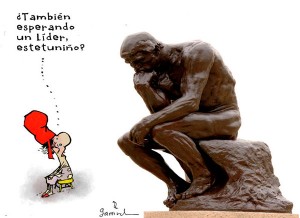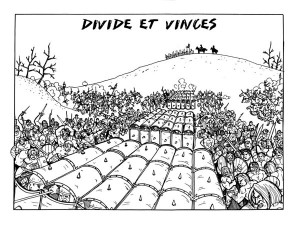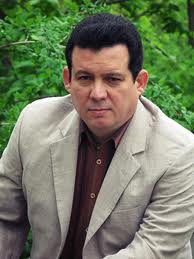Angel Santiesteban talks with Amir Valle about personal experiences that marked their lives.
It was an attempt, the first one of that natural instinct that later we would know as a personal trait of yours, to get out of the fold, out of the official frameworks and, in a statement drafted and made public by some of those youngsters that were named “The Six of Eighties” group in which, you along other writers: Jose Mariano Torralbas, Alberto Garrido, Madlum Marcos Gonzalez, Ricardo Hodelín Tablada, José Manuel Poveda Ruiz, somehow stepped aside from the ruling canons.
That meant a scandal in Santiago de Cuba and, like gunpowder, arrived at Havana, so the national bodies of the political police issued a directive to “assist you”: as we know, they took you all as a “dissident” group who, influenced by — no one knew who — you were being “manipulated” by the “anti-communist propaganda”, therefore you were besieged, interrogated, tempted by being offered a boat ride from the bay of Santiago to an open area, they pressured your parents, and that way, as it was known later, you became part of the “black list” for good.
At the first opportunity, you picked up some books and you left for Havana. I witnessed all the sacrifices that you made at the time, besides, away from your parents, with whom you shared so many dreams.
Angel Santiesteban: 1. What do you remember, after so many years, from those events that took place when you were almost fourteen years old that prematurely marked your life?
AMIR VALLE: Those were very happy years. Those who lived in Santiago de Cuba in the ’80s will agree with me that they were really glorious years for culture, a time that, as I have heard, has not been repeated.
Santiago received the greatest Cuban and Latin American writers; the complicit joining of Aida Bahr, Oscar Ruiz Miyares and Augusto de la Torre from different positions in cultural institutions and in fighting a well settled state bureaucracy in the city, supported by literary specialists, among whom I remember with particular fondness, Maritza Ramirez or Gladys Horruitinier, which allowed the development of the movement of literary workshops, even publications in other parts of the country they could not have dreamed of.
The network of literary competitions was very important; besides the musical force of Santiago, the takeoff of theater, dance and the visual arts was impressive; Santiago hosted the most important cultural events in the eastern part of the country and in the whole country as well, and among the young people, as well you say, the idea of creating literary groups. “Six of the Eighties” in our case, the La Raya group of poets, and other groups they had no name, but they worked the same.
But the most beautiful was the unit that was created among those young writers who were attending the gatherings of Heredia House in the Student House, or other gatherings to improvise, for example, at Cafe La Isabelica in a corner square Dolores, or Chess Park, or in the case of our group, in the house of Torralbas in the Sueño neighborhood, which we called “the loft of Torralbas”, because being built on a hill, from the doorway we could enjoy a beautiful view of the city.
If to this you add that as writers we received really special pampering as human beings and the great Jose Soler Puig, the unforgettable Jorge Luis Hernandez, Jose M. Fernandez Small, Aida Bahr, Daysi Cué, Luis Carlos Suarez or Lino Verdecia, these three latter who became guide-friends who were studying at the University of Oriente, you will understand that none of these other discomforts mattered a lot.
We wanted to write and, in all honesty, many good people had conspired for us to do. I remember more than that harassment that they actually began receiving, we felt uncomfortable with the missteps that some “provincial sacred cows” of the older generations attributed to us then, jealous of our success at the provincial and national level.
From that time I keep, to give just one example, the treasure of the most faithful brotherhood that binds me from the love and admiration for one of the greatest poets that Cuba has today: Odette Alonso Yodú.
None of our group was thinking about anything else but becoming a great writer. It was crazy and beautiful. But Torralbas was always ahead of us; I would dare to say that for family reasons or disagreements he had at a very young age, he was the only one among us that showed a fairly open defiance against the Revolution. And it was he who was pushing us towards a less compliant literature, but more critical one instead.
The other disagreement was that evening, right after receiving a visit from one of those “collegues” who said they were concerned that the “enemy not divert us from the right path”, my father told me, and forgive me for answering you with the same curse he used, but I believe it is necessary: “We’ll see what the fuck you do, but I do not want a ’worm’* in this house: My children have to be revolutionary and if I find out that you’ve become a ’worm,’ I’ll kill you myself.”
That day, I must confess, something snapped inside me, and for years I struggled to understand how the same being that gave me so much love could turn so blind, forgetting that I was only doing what he had advised me when I turn 14, when he said: “Son, lying is the biggest shortcoming that a man can have. Never lie, even if you annoy someone. I fought for this Revolution, I made this Revolution so that everyone could speak their minds without any fear of ending up in a ditch with their mouth full of ants.”
Angel Santiesteban: 2. You distanced yourself from your Santiago de Cuba and left for Havana, changing universities to continue your studies in the career of Journalism; was this because in some way you were being stalked by State Security? I remember that, once settled in Havana, I witnessed your return from classes, upset with those State Security agents , because they interrupted class schedules and in front of other students, they took you out into the hallway of the department for questioning, to force you to answer questions about expressions you and others said in cultural or private places.
AMIR VALLE: Actually that did not have much to do with it, but certainly, it bothered me the harassment of that mustachioed guy whose name I never knew. He showed up everywhere (I later learned that he did the same with each of us) and proposed to us to become agents, who would informed him of everything that was said in our meetings and in our encounters with other people from the cultural field.
I’ll tell you something funny: one of the not so young writers who excelled at that time in Santiago de Cuba was Eliades Acosta Matos, who later became Director of the National Library, and then the Head of the Department of Culture of the Central Committee of the (Communist) Party; meaning, he would have the role of Great Censor.
I was very good friends with Eliades, back then when I was still in Santiago and, when he was just a minor official of culture, whose greatest interest as he said was to become a writer. I used to visit him at work and at home, where we read our stories to each other and we talked a lot about universal culture, because he really had such opinions that really fascinated me. What I have never said is that I decided to break up that friendship and stop visiting him, when that mustachioed security agent told me Eliades was in trouble, and I, in order to help save him from falling into enemy hands, should tell State Security everything he said.
Those close to me know that I worship friendship fanatically, so that instead of approaching Eliades and becoming a spy myself, I walked away from Eliades and, weeks later, when the mustachioed agent showed up at my house to talk for the third or fourth time with my father, I told him I had a big argument with Eliades and our friendship was broken. That is why it hurt me so much that, in 2006, when he was still the great censor of the Communist Party, in an interview with Granma International he discredited me and called me a mercenary, a traitor and other insults.
However, the real reason of my departure from Santiago was my ambition, back then I had such a huge ego that even I could not stand myself. I had outgrown Santiago: I had won all the awards, my name came up in all literary studies, from Santiago I had started to sneak into the muddy ground of national literature and several disappointments in the cultural scene made me realize that I should go to Havana if I wanted to be more important.
I remember Aida Bahr told me, “Why are you leaving? Beware, here you are the “head of a lion” and there, if ever, you are going to be “a mouse tail.” But, wielding all the ego I had in those years, I replied to her, “I’ll eat Havana, Aida, and there, you can be sure, I will be one of the most visible matted hairs in the mane of the lion.”
Today, although I spent years asking God to give me the humility that a Christian should have, when I look back, I realize I have accomplished my goals: despite all the obstacles, all the graft of the power groups and all the pressures because of my desire to write freely, I managed to impose myself, to win prizes, to publish and to be considered an author who deserved to be named in the national literary studies, and all that from my position of lone wolf.
That’s something you know well, only a few of us know: I was a loner, and I imposed myself back in Cuba because of stubbornness, writing, sending off to hundreds of contests, writing, writing, writing, to the extent that Anton Arrufat once said, and I don’t know if it was good natured kidding or it was one of his usual elitist criticisms, that, “if Guillermo Vidal writes a novel per month, Amir Valle writes one a week.”
And as you well remember, Guille Vidal said at an event to praise my diligence, “Do not be fooled, Amir is not a single person; It is an army of Amirs: One Amir writes stories, one Amir writes novels, another Amir works for newspapers and makes essays for magazines, another Amir gives workshops, another lectures, another writes scripts for television, three other Amirs read more than ten manuscripts each month that writers across the island send to his home in Havana for him to advise them, another Amir advises and prepares publishing anthologies of the young talents of the Cuban narrative … That’s why he can be everywhere and do so many things.”
All that, I repeat, alone, without the support of any of the three groups of power that existed at the time at national level: the group was sponsored by Eduardo Heras León, called “el Chino” Heras (who was joined by many of the “realistic” writers later called “the violent ones”).
The group that was sponsored by Anton Arrufat (which was joined by to those who later would be called “the gay lobby”).
And the group of writers close to the official cultural power, most loyal members or friends of the generation of writers in the ’80s. Although some of them who were my friends, I never joined boys who would found the interesting Diaspora(s) project and just attended, as a silent listener, the literature clubs on Reina Maria Rodriguez’s roof, where writers from all these groups and trends came together, but where a space was being opened up for other less rigid ways of understanding creation and literature.
Many people believe that I was sponsored by Eduardo Heras León, but that, as you know, just happened from 1984 to 1988. I arrived in Havana in July 1986 and by the end of 1987 a personal disagreement with “El Chino” Heras made me feel isolated, disappointed, so I had to fight so as not to be crushed by those dark powers who spoke out against me from the chapels and literary cliques that existed then.
I like to give honor to whom honor is due, and therefore I must say in those years, I was saved from loneliness by two people, and can even say that most of my literary achievements were possible thanks to the love and support I always received from the unforgettable Salvador Redonet — a university professor— and a teacher and writer, almost a mother to me, Mercedes Melo, called Chachi.
Angel Santiesteban: 3. What effect have left in yourself those personal experiences? You always had Literature as a must dream. You wrote, and still write, with that enviable discipline, and I do not remember meeting anyone with such work ability as yours, so that you have under your belt almost three dozen books, before the astonished eyes of all of us who have accompanied you in this literary adventure. Once you admitted your “fear of dying young”; if I remember correctly, someone had told you that prophecy, luckily, and although I think that somehow we are still young, it did not happen. Was it something that you made up to justify tons of typewritten sheets of paper or it actually happened and you got scared back then,in your early teens?
AMIR VALLE: Such blatant pressures on me during my years as student of journalism at the University of Havana affected me, I think, as favorably as such impact can: it deepened my disappointment, I was terrified. I had decided until that very moment to write critically, but just after the last of those harassing encounters with the State Security agent, which coincided with a historic event in Cuban journalism that happened at the Faculty of Journalism, I decided to openly speak my mind, and do it also through journalism, even if it would not be published in Cuba.
As you must remember, in the first of those meetings, in 1986, I came home very afraid. I was in the classroom and the secretary of the dean came to get me, he asked permission from the teacher and told me to go to her office. It was the secretary who then told me to go upstairs by way of a round staircase to another room that was locked up. There I met two men who introduced themselves as officers of the State Security and I confess that the tactic of good-cop bad-cop they used made me feel afraid: It was the first time I faced something like that.
It was right there, where I confirmed all the suspicions that we had in Santiago: the two men confirmed to me that an alleged young writer who hung out with us was in fact sent by them, that the yacht ride another co-worker offered us was also planned by them and, even worse, three of my best friends in the journalism classroom in Santiago de Cuba, were reporting to them every week on every single of my “ideologically opposed” comments. That feeling of knowing that I was watched and betrayed crushed me. I could not understand how those who should be concerned about more dangerous issues against national security, were after an innocent asshole like me.
But right there a curious thing happened: I started writing with more anger about our reality, and keeping those things in places where I thought no one would ever find them, and I started reading a lot of banned literature taking advantage of my friendship back then with an old historian who lived a few blocks from the house of my aunt in Luyanó, where I lived all those years.
That old man, Samuel, had an impressive library and, since his daughter was a Cuban diplomat, she brought him books he lent me. I am still happy to recall that when my presence became common in his library (because for months he would not let me take the books home), one day he told his wife, “when they define the term in the dictionary Library Mouse it will show a picture of this kid.”
Returning to the appointments they forced me to attend: the last one was after a meeting in which we journalism students demonstrated, first against Carlos Aldana, who was then the head of the Ideological Department of the Central Committee of the Communist Party, and then against Fidel Castro himself, who, taking advantage of a meeting in the Palace of the Revolution which he “accidentally” snuck into, questioned many of the flaws of the media and the revolutionary process.
Some believe that I had role in what happened there, but the truth is that when I discovered it was a setup, I threw out the last question, yes, preventing Fidel from continuing to crush others, who were naive and had not realized that it all was a farce.
My question, I did ask with the sole intention of getting him to run his mouth, knowing that he would not stop, as indeed happened. After that, a real witch hunt began at the Faculty of Journalism against all those who had dared to confront the power.
Many were intimidated so that ended up becoming government bootlickers, the most embarrassing case being Alexis Triana, who was in fact the organizer and one of the masterminds of this “revolt.” I still remember it in our brief but intense meetings in the park opposite the department, where we coordinated what to ask, what issues we couldn’t miss, and even who should ask and how to fight back against the predictable responses.
In those days they came to see me again — bad Policeman and good Policeman — and they said they already had met with other colleagues of mine who were willing to cooperate to finish crushing the revolt: in front of those colleagues who cooperated they mentioned my classmate Rosa Miriam Elizalde, someone to whom I devoted a special affection.
At this point I do not know if he was lying, but then, seeing the sudden leadership role she got, and seeing her meteoric career rise up to power, I have come to think that maybe they told the truth.
At that meeting (always the same method: secretary approaches the door of the classroom, asking for permission for me to leave and ordering me to go to her office) they wanted to communicate that in return for my question and the way I cut off what they called “a string of stupid insults to the Commander” they could promote me to one of the positions on the Faculty and even to being a member of a select group of students who would work directly with the President of the Union of Journalists on the ideological work with freshman journalism students.
I told them that the only time I held a leader position I was a mess, I lost friends in the student world because the leaders were always looked down upon by others, and to me the only thing that mattered was to graduate. Good Policeman said, “Sorry, you could have been very helpful,” and bad policeman muttered: “You’re gross, kid, you are about to fuck up your life.” And the fact is that from that day on, things narrowed so much for me in college that I began to focus only on my studies, and the clandestine readings at my old friend Samuel’s house, and in writing, day and night, like a man possessed.
Dying young is something that always worried me, until I met Cristo and knew that he would wait for me in that eternity that all Christians dream off. We were doing field work in journalism and I and a colleague, a great friend, Jorge Baxter from Holguin, we were assigned the subject of African-Cuban religion.
When we got the saint room of one of the babalaos (holy people of African-Cuban religion) we interviewed, the old man stared at me and said: “I see the mark of a genius upon you,” and I liked that, it fed my ego, but what followed afterward felt quite bad, “you are going to die young,” he said, “geniuses always die young.”
And the truth is that if I lived until today it is because I don’t think I am the genius that he saw in me, but I also wonder if there was something that happened there that confused the spiritual diviner of the old man, because the one who died young of a heart attack, was Baxter my colleague, a tough loss for those who knew him.
Angel Santiesteban: 4. You were always daring, and that has defined your life, perhaps like fate. This natural rebellion that began, as we already said in 1980, and then was kept in perpetual conspiracy between your ideas, dreams and feelings reflected, of course, in your most mundane or transcendental acts.
I remember, somehow, you tried for young writers to get to be part of the board of the UNEAC (Writers and Artist Union of Cuba), you campaigned among us for a while, not to promote yourself, but for someone of our generation might also decide, and I even remember a young writer, Alberto Guerra Naranjo, told a gathering of writers that “my generation also wants to cut cod” [’call the shots’] and, as he said it, some ruling dinosaurs understood that “cut” to mean that the young people wanted to “cut off the heads” of the slate of nominees submitted without Abel Prieto’s consent, as you and I know, since we know him well, he pointed his finger at his friends of his generation to fill the vacancies, as still happens in those useless Congresses.
It is undeniable is that the UNEAC board was offended by our transgressions and created a real lobby to nullify us, as eventually happened.
AMIR VALLE: Look, there is a reality that few comment on: in the years when we started to grow, in literary terms, and even now, the domain of culture in the country was in the hands of the Generation of ’80s. I myself remember being in some gathering of friends where some of them, Abel, Sacha, Arturo Arango, Norberto Codina, bragged that they had taken the monopoly of culture from Armando Hart and his court of mediocre ones.
They were sneaking into magazines, into publishing houses, into the offices where cultural directives for the country were decided. And I hope you remember because you were present, the party where we all celebrate that Abel Prieto was appointed Minister of Culture. We saw the heavens open up and I still clearly remember his words: “I know that among all these mayimbes (powerful ones) I’m just a piece, but at least I hope it serves to help our pals and that culture takes freer paths.”
And certainly it is honest to say, that strategy produced a real change in the culture of the country, it was like a breath of air, moments of certain controlled openings, compared with the period of Hart, whom I remember in an event in Cienfuegos saying to us, the young people: “You are artists, so you play with the rules of art, but if you get into the field of politics you have to face the political consequences of your actions, because at least us, who made this revolution, we’re going to respond to you politically.”
That generation, from the’ 80s, as one them put it to us in a discussion in the last Book Fair held in PABEXPO, could be proud of having taken power from the cultural commissars of the early years and having closed their path, those were his words, “to the mediocrity of previous generations who intended to continue living on stories because once, one of their little books was outrageously censored.”
For me, as you did, I felt very near the traumas that that censorship in the ’70s caused a writer as great as Eduardo Heras León could have been, whom I consider was the frustrated by force, could not understand that this generation, consolidated itself when we took our first steps, I mean, many of them our friends, suddenly became censors, strategists of culture that from their offices do the dirty work of the political power.
Therefore, in the mid-90s, I started along with the writer Alberto Guerra Naranjo a conspiracy with the intent to remind them our generation was as strong as theirs and, although it sounds ugly and generational, quality wise ours was superior.
But they were our judges, who decided who will rise and who will not, and it was even customary that Sacha gave military degrees ranks to writers, according to our “literary level.” So we were captains, when all of them, according to Sacha, were generals, and one day, years later, when we were no longer that young, she almost gave us a heart attack, when she said we had been promoted to colonels.
It was a game, but a game that defined very well the state of opinion they had about themselves and about us. And today I say with no regret from that generation, if indeed any could be considered a general, those were: Leonardo Padura, Miguel Mejides, Reinaldo Montero, Luis Manuel Garcia Mendez, Abilio Estevez and Aida Bahr, among the storytellers.
The others, kept living on stories or, even more literally, living on having written once a good story. By the time of that anecdote you refered to, Alberto Guerra and I, with the support of Mercedes Melo, we celebrated the Colloquium of Current Cuban Narrative: “Open the beat of criticism,” on the 4th, 5th and 6th of July 1996 in the Provincial Center for Cultural Improvement and House of Writers in the 10 de Octubre district, an event that, like that of the voting you talked about, was completely boycotted, and, of course, no one from that generation attended.
Angel Santiesteban: 5. What did you try to achieve by what officialdom understood as a “cultural coup d’etat”?
AMIR VALLE: The idea I had then is the same I defended afterward, until today: culture can not be the fiefdom of anyone, neither politicians nor chapels nor literary groups. It has to be a land of freedom where all trends, generations, schools and powers converge.
I remember a joke Anton Arrufat told Guillermo Vidal and me on an occasion when a typesetter, ex-military, is horrified at a book by Guillermo Vidal and decided, without consulting anyone, to stop its printing: “Dear Guillermo, in your case it is clear that in this country Culture is not managed by the poor Abel Prieto, it is managed from the building of the Armed Forces, in the Plaza of the Revolution.”
And he was right: I witnessed how Omar González, then president of the Cuban Book Institute, and several officials from the Ministry of Culture, including a vice minister, had to negotiate with the military for Guillermo Vidal’s book to finally be printed.
In the end, I confess, I gave up. Our fellow writers, all of them, regardless of generation, were full of fear. Trying to mask that fear by saying that their hesitations were due to: politics was not their thing or, the more honest ones, because they did not want to risk losing the little they had, but the undeniable fact is the disgrace of other generations in assuming certain responsibilities and the strategy of that generation of taking those responsibilities as their own, paved their way to stay in power, to monopolize the national and international promotion of culture in their favor and, unfortunately, to obstruct the air of freedom that brought the new generations that have arisen up to today, in many cases, annihilating them with the speech about the fidelity owed to the Revolution.
Traps, entanglements and schemes against other colleagues staged by some of them are material for an encyclopedia on human misery. Or does someone want to convince me that Abel Prieto is now a personal adviser to the dictator simply because Raul Castro is fascinated with his mane?**
Angel Santiesteban: 6. What did you expect from the young writers and which cultural policy were you betting on? Returning to those votes, I remember they elected me to the ballot selection committee, where writers wrote the names of delegates who were supposed to represent them in the Congress of the UNEAC. I made sure Guillermo Vidal, rest in peace, obtained the necessary ballots to be there. At the end of the ballot count he was the most voted, which necessarily, according to the supposed democracy they wanted to show with that circus act, “Guille” would be The Delegate; however, he was not invited.
AMIR VALLE: I thought we all wanted the same thing: more windows for promotion; more freedom to publish our literature without many of our stories or books being subjected to censorship; less paternalism, as we had already discovered that this alleged way of protecting us had turned us into “eternal frozen promises”, even though many of our works were considered by some leading critics (Margarita Mateo, Madeline House, Salvador Redonet) better than others of previous generations.
But it was right there in those preparatory meetings of the Congress (since I was fortunate to participate in some meetings in other provinces), when I discovered the narcissism than sickens Cuban intellectuals and writers: as long as one is not touched by the evils affecting others, nobody cares. And the cultural strategy of the Revolution has been to make them believe that they are nothing without the support of the institutions, they are nothing without the cultural support of the Revolution or without the support of a the country.
Beside,s the typical selfishness of us, who are in this field, of arts and culture, and the way things are, makes them cling to any minor promotion or publication opportunity they believe they have won, even if it means having to sacrifice their principles.
And finally, as you might remember, one of our colleagues told us in those days, “What is the point in opposing, and proposing something new, if from the power elite they will manage to keep things the same, so that nothing changes?”
That’s what happened with Guillermo Vidal: since he was such a beloved and respected guy, even by his enemies, he got that overwhelming vote, but the power elite decided they could not afford a big mouth like him disrupting the sheepish docility they had planned for that Congress, which, as we already know, was an Ode to Submission.
End of first part.
On the second section they will talk about friendship, loneliness, honesty, betrayal colleagues and the independence.
Note from the Editor: The interview was so long and deep I had to split it up in sections to publish it.
Translator’s note*:
“Gusano,” meaning “worm” or “maggot” was a common insult applied to counterrevolutionaries, and used by Fidel Castro in speeches.
**Abel Prieto has notably long curly hair and a lot of it.
